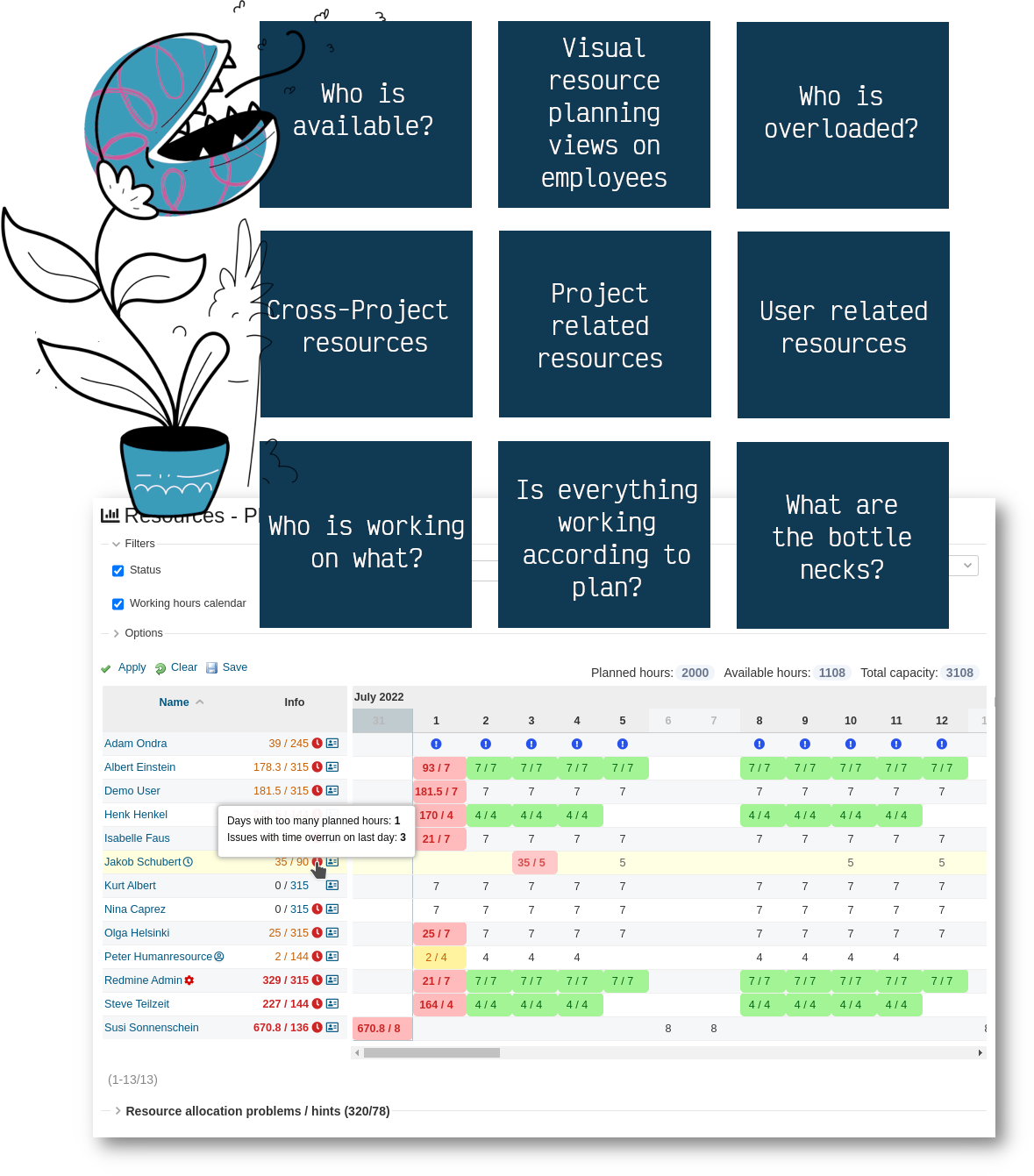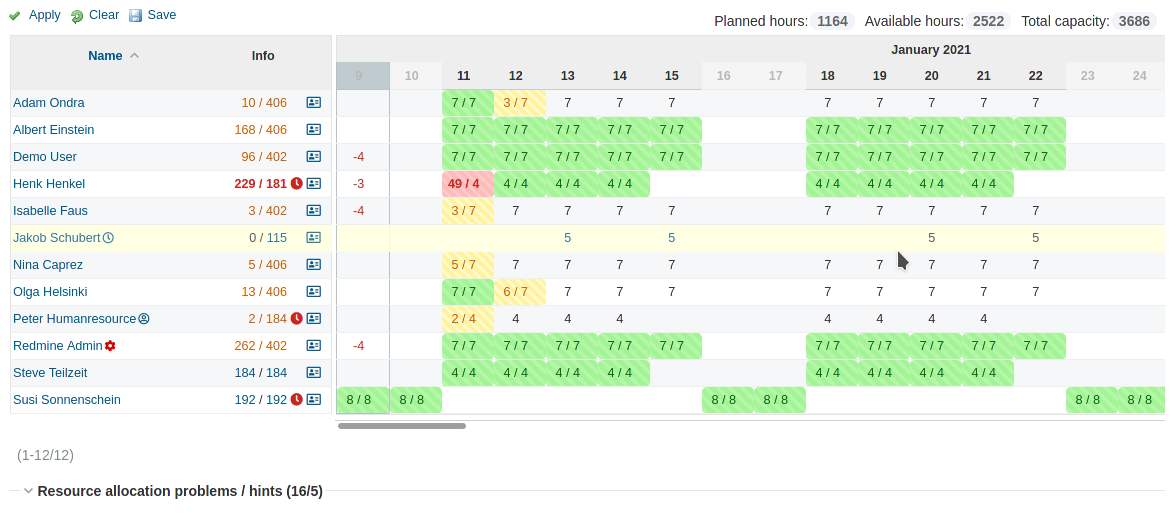It’s true, that project managers are responsible for monitoring project progress and take care of their team to complete work on time. So deadlines and milestones are reached and products are delivered to the stakeholders.
But that does not mean you have to plan every little detail until it’s perfect. Which you won’t be able to do anyway. No matter how hard you try. Because micromanagement takes time. A lot of time, that keeps you from doing important tasks, that are more relevant for your team and your customer.
As a project manager your job is not to focus on every detail, but to see the big picture, build up a great team to ensure they are doing their job and keep your project on track until it’s (hopefully successful) completed.
Staying away from micromangement is easier than you might think, when using the right tools. One of those tools is the Redmine HRM Plugin. A resource management extension for Redmine, that helps you to keep your team on track and don’t loose the big picture out of sight.
How does Redmine HRM reduces micromangement?
Project managers who focus too much on micromanagement divert attention from long term goals. The HRM Plugin is a solution for all decision makers who attach less importance to the detailed planning of individual tasks and prefer to leave this to an intelligently acting tool.

With the help of hard-coded rules, the HRM plugin facilitates project planning. Everything the user needs to do is done in a few simple steps.
This includes:
- Create an issue that defines the task
- Deposit a time estimate
- Handing over the issue to a user (Assignee).
- If necessary, assign a version (with the planned completion period) or a concrete start- and / or end date.
During the development process, our team has thought a lot about possible rules to ensure that project issues can be processed as effectively as possible, even without manual intervention.
We think that we have succeeded well. Because only with the help of carefully worked out rules it is at all possible to escape the micromanagement cosmos.
The implemented rules of the HRM Plugin ensure that:
- Issues that fall within resource planning are scheduled accordingly and not forgotten.
- Issues that do not fall into resource planning are not disregarded.
- possible problems in the completion of scheduled issues are recognized at an early stage.

The Resource allocation problems / hints box informs everyone with access to the HRM Plugin resource view about possible problems.
How is it still possible to manually intervene in resource planning?
Of course, individual issues can still be scheduled manually. Simply by manually specifying a time period or a specific completion date in addition to the necessary items (time estimate, assignee, etc.). By changing the issue priority or by adjusting the velocity or maximum issue allocation.
In such a case, these issues will be rescheduled or scheduled for a specific period or day. The other issues will then be postponed accordingly. Either they run up on this day (if they also have to be finished by then), or they run around it. In this way, you simply postpone work that needs to be done. And this until you finally take care of them.
Effectively plan team resources and tasks in Redmine
Redmine HRM Plugin is an extension of the Reporting plugin (required as a base), which helps you to plan team resources and attendance management.
All information about our extensions to Redmine can be found on the Product page. For minimum requirements visit our plugin Pricing page. The HRM Plugin is an extension of the Reporting Plugin and available as single version (if you already use the AlphaNodes Reporting Plugin) or as bundle.
